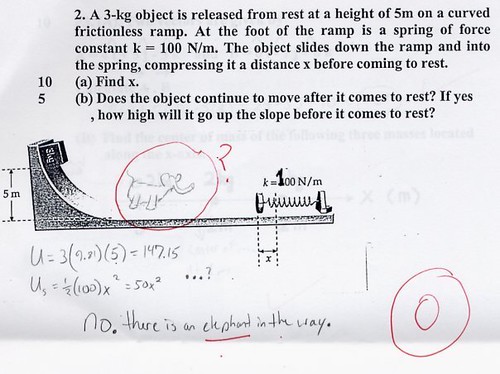- Joined
- Mar 18, 2011
- Messages
- 3,453
- Reaction score
- 1,332
One of the professors asked us if there were any courses/pre-reqs we thought an admissions committee should consider doing away for acceptance to veterinary school. Apparently the topics of massive educational debt and time spent to gain acceptance to veterinary school have been discussed a bunch, and something they had thought a lot about was how each pre-req costs a substantial amount of money and time for a candidate. Thoughts?



